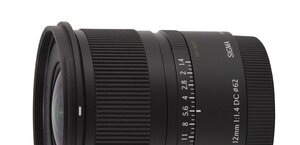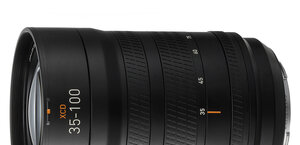Fujifilm Fujinon XF 16-80 mm f/4 R OIS WR
8. Vignetting
That cropping and correction are so strong that in JPEG files you can't notice any vignetting at all. There is even no need to show you thumbnails because, by and large, all of them look the same. The maximum vignetting we noticed at 16 mm and it amounted to 15% (−0.47 EV). At 30 mm and 80 mm we got 13% (−0.39 EV), and at 50 mm just 8% (−0.23 EV).
If you want to see how optics really deal with that aberration you have to examine RAW files developed by independent software such as dcraw. Appropriate thumbnails you can find below.
Please Support UsIf you enjoy our reviews and articles, and you want us to continue our work please, support our website by donating through PayPal. The funds are going to be used for paying our editorial team, renting servers, and equipping our testing studio; only that way we will be able to continue providing you interesting content for free. |
- - - - - - - - - - - - - - - - - - - - - - - - - - - - - - - - - - - - - - - - - - - - - - - -
| Fujifilm X-T2, RAW, 16 mm, f/4.0 | Fujifilm X-T2, RAW, 16 mm, f/5.6 |

|

|
| Fujifilm X-T2, RAW, 30 mm, f/4.0 | Fujifilm X-T2, RAW, 30 mm, f/5.6 |

|

|
| Fujifilm X-T2, RAW, 50 mm, f/4.0 | Fujifilm X-T2, RAW, 50 mm, f/5.6 |

|

|
| Fujifilm X-T2, RAW, 80 mm, f/4.0 | Fujifilm X-T2, RAW, 80 mm, f/5.6 |

|

|
As you see the results are much higher than in the case of JPEG files. At a difficult combination of 16 mm and f/4.0 aperture vignetting might reach a very high level of 47% (−1.83 EV). It would be difficult to compare that to the results of direct rivals because lenses, described in this test differ in focal range and aperture fastness. Still compared to the Nikkor AF-S DX 16–80 mm f/2.8–4E ED VR it looks bad because the Nikkor, with an even better f/2.8 aperture fastness, had a lower light fall-off that the Fujinon by f/4.0.
The second bad news is slow vignetting decrease on stopping down. By f/5.6 the aberration reaches 37% (−1.33 EV), by f/8.0 it's still noticeable, amounting to 29% (−0.98 EV), and it doesn't disappear completely even by f/11 and f/16, where it is, respectively, 24% (−0.79 EV) and 23% (−0.77 EV).
At 30 mm focal length the situation seems to be noticeably better because at the maximum relative aperture brightness loss in frame corners amounts to 28% (−0.97 EV). Once again stopping down is not especially effective because by f/5.6 vignetting is still 22% (−0.73 EV), by f/8.0 it amounts to 17% (−0.54 EV), and by f/11 it reaches 15% (−0.49 EV).
Even better results you observe at 50 mm. Here by f/4.0, f/5.6, and f/8.0 apertures we got, respectively: 23% (−0.77 EV), 15% (−0.47 EV) and11% (−0.32 EV). Further stopping down of the relative aperture didn't have any measurable influence on vignetting.
The 80 mm focal length makes higher vignetting values return. At the maximum relative aperture you get 35% (−1.24 EV) and by f/5.6 the aberration decreases to 19% (−0.61 EV). Vignetting becomes practically imperceptible by f/8.0 and f/11 where it is, respectivelly, 11% (−0.33 EV) and 8% (−0.25 EV).
| Fujifilm X-T2, 16 mm, RAW, f/4.0 |
 |
| Fujifilm X-T2, 30 mm, RAW, f/4.0 |
 |
| Fujifilm X-T2, 50 mm, RAW, f/4.0 |
 |
| Fujifilm X-T2, 80 mm, RAW, f/4.0 |
 |






